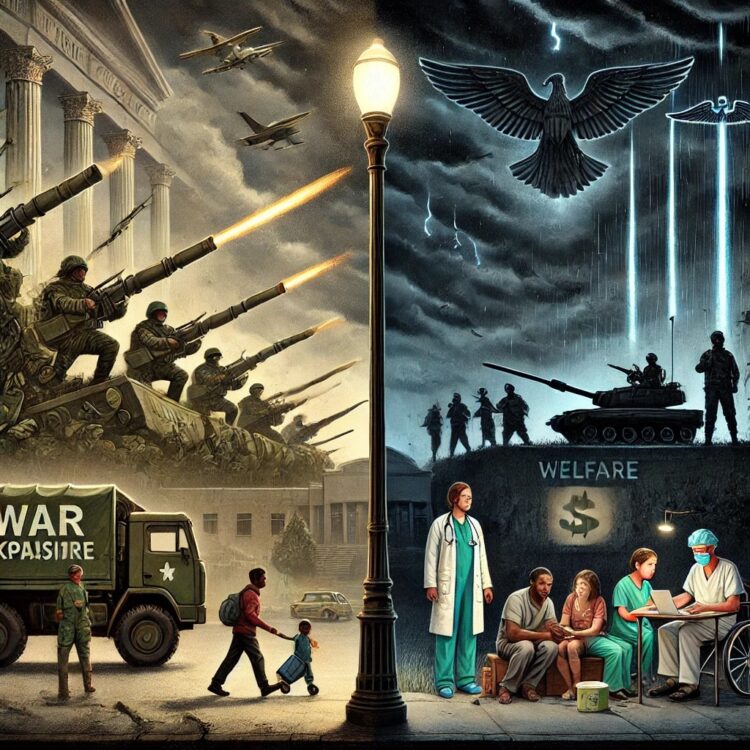
In recent years, a discernible shift has emerged among major Western democracies, characterised by a reallocation of resources from welfare programs to military expenditures. This trend raises critical questions about societal priorities and the potential implications for the future of humanity.
The Shift from Welfare to Warfare
Historically, the conclusion of significant conflicts, such as the Cold War, ushered in a “peace dividend,” allowing nations to reduce defence spending and channel funds into social programs. However, contemporary geopolitical tensions have prompted a reversal of this trend. Global military expenditure has surged, driven by escalating conflicts and rising international tensions.
In Europe, the war in Ukraine has compelled nations to reassess their defence budgets. Countries that previously benefited from reduced military spending now face challenges in balancing increased defence needs with substantial welfare commitments. As military funding increases, governments are forced to make difficult choices between maintaining social benefits and ensuring national security.
Policy Proposals and Public Reactions
Influential figures have also entered the debate on welfare spending. Some advocate for scrutinising and potentially eliminating certain federal entitlement programs, citing concerns over fraudulent spending and the growing burden on national budgets. Others argue that welfare programs are essential for maintaining social stability and economic resilience.
In the United Kingdom, internal government discussions have revealed tensions over proposed welfare cuts. Some officials have criticised anticipated reductions, arguing that such cuts could undermine key governmental commitments, including social housing and law enforcement capabilities. Meanwhile, economic advisors have urged alternative fiscal strategies to avoid deep welfare reductions, such as adjusting fiscal rules or increasing taxation.
Implications for Society
The reallocation of funds from welfare to military spending carries profound societal implications. Empirical studies suggest that increased military budgets often result in decreased public health and social spending. This trade-off raises concerns about the well-being of vulnerable populations and the potential exacerbation of social inequalities.
Moreover, the erosion of social safety nets may lead to increased poverty and social unrest. Welfare programs play a crucial role in mitigating economic disparities and providing support to those in need. Their reduction could strain social cohesion and place additional burdens on other public services.
Conclusion
The emerging trend of prioritising military expenditure over welfare programs in Western democracies reflects a complex interplay of geopolitical pressures and domestic policy choices. While national security is undeniably important, it is imperative to consider the broader societal impacts of diminishing welfare support. Striking a balance that ensures both security and the well-being of citizens is essential for a just and equitable future.
Michael J. Tyler